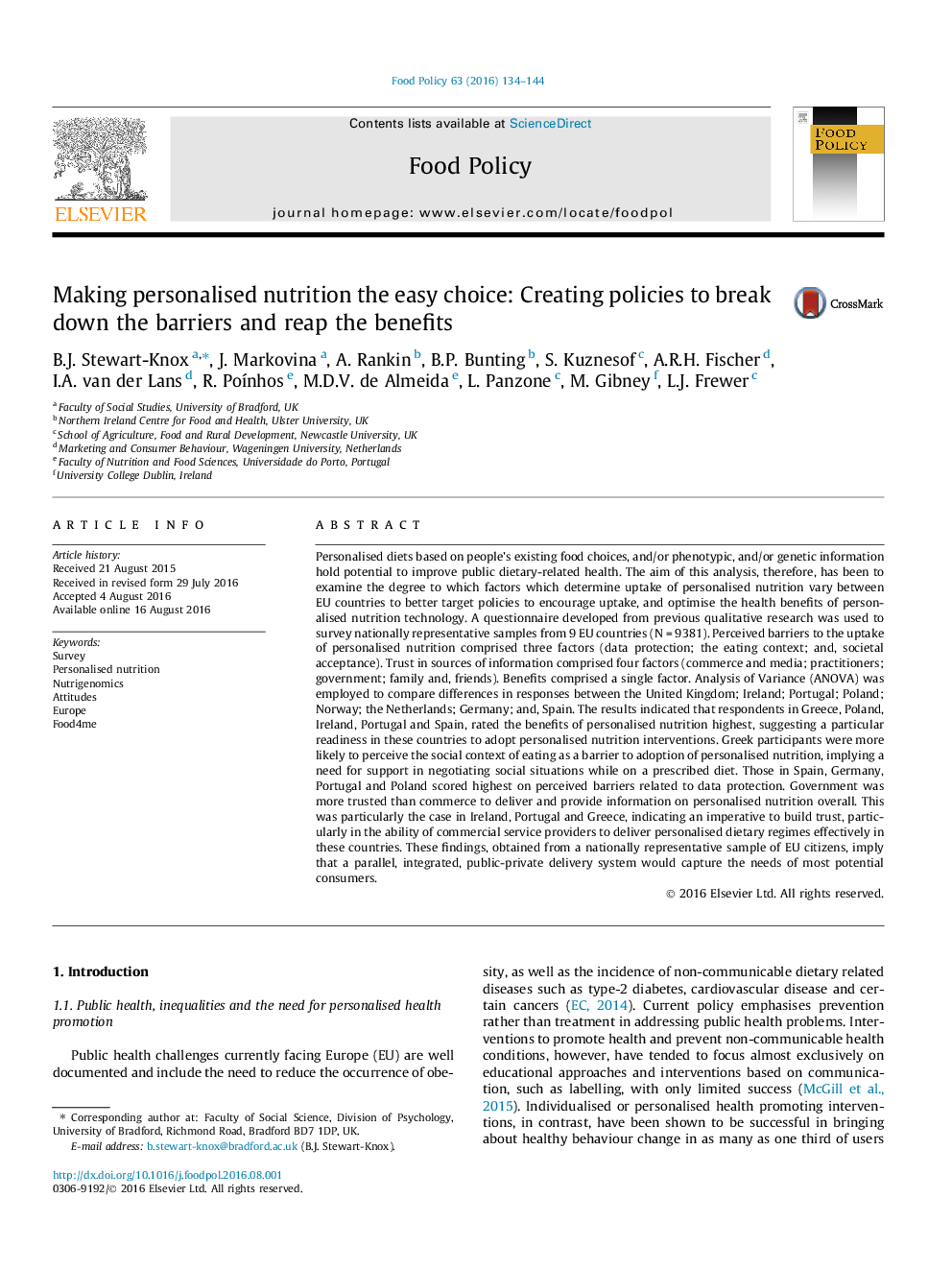| کد مقاله | کد نشریه | سال انتشار | مقاله انگلیسی | نسخه تمام متن |
|---|---|---|---|---|
| 5070159 | 1477013 | 2016 | 11 صفحه PDF | دانلود رایگان |
- Personalised nutrition (PN) has potential to reduce incidence of disease and reduce health costs.
- Food4me data are reported with implications for European and national policy to widen access to PN.
- Both public and private personalised nutrition delivery systems are needed.
- Policies are required to approve and regulate providers and so that data are handled securely.
- Personalised dietary plans need put in place in workplaces, retail and catering outlets.
Personalised diets based on people's existing food choices, and/or phenotypic, and/or genetic information hold potential to improve public dietary-related health. The aim of this analysis, therefore, has been to examine the degree to which factors which determine uptake of personalised nutrition vary between EU countries to better target policies to encourage uptake, and optimise the health benefits of personalised nutrition technology. A questionnaire developed from previous qualitative research was used to survey nationally representative samples from 9 EU countries (NÂ =Â 9381). Perceived barriers to the uptake of personalised nutrition comprised three factors (data protection; the eating context; and, societal acceptance). Trust in sources of information comprised four factors (commerce and media; practitioners; government; family and, friends). Benefits comprised a single factor. Analysis of Variance (ANOVA) was employed to compare differences in responses between the United Kingdom; Ireland; Portugal; Poland; Norway; the Netherlands; Germany; and, Spain. The results indicated that respondents in Greece, Poland, Ireland, Portugal and Spain, rated the benefits of personalised nutrition highest, suggesting a particular readiness in these countries to adopt personalised nutrition interventions. Greek participants were more likely to perceive the social context of eating as a barrier to adoption of personalised nutrition, implying a need for support in negotiating social situations while on a prescribed diet. Those in Spain, Germany, Portugal and Poland scored highest on perceived barriers related to data protection. Government was more trusted than commerce to deliver and provide information on personalised nutrition overall. This was particularly the case in Ireland, Portugal and Greece, indicating an imperative to build trust, particularly in the ability of commercial service providers to deliver personalised dietary regimes effectively in these countries. These findings, obtained from a nationally representative sample of EU citizens, imply that a parallel, integrated, public-private delivery system would capture the needs of most potential consumers.
Journal: Food Policy - Volume 63, August 2016, Pages 134-144
